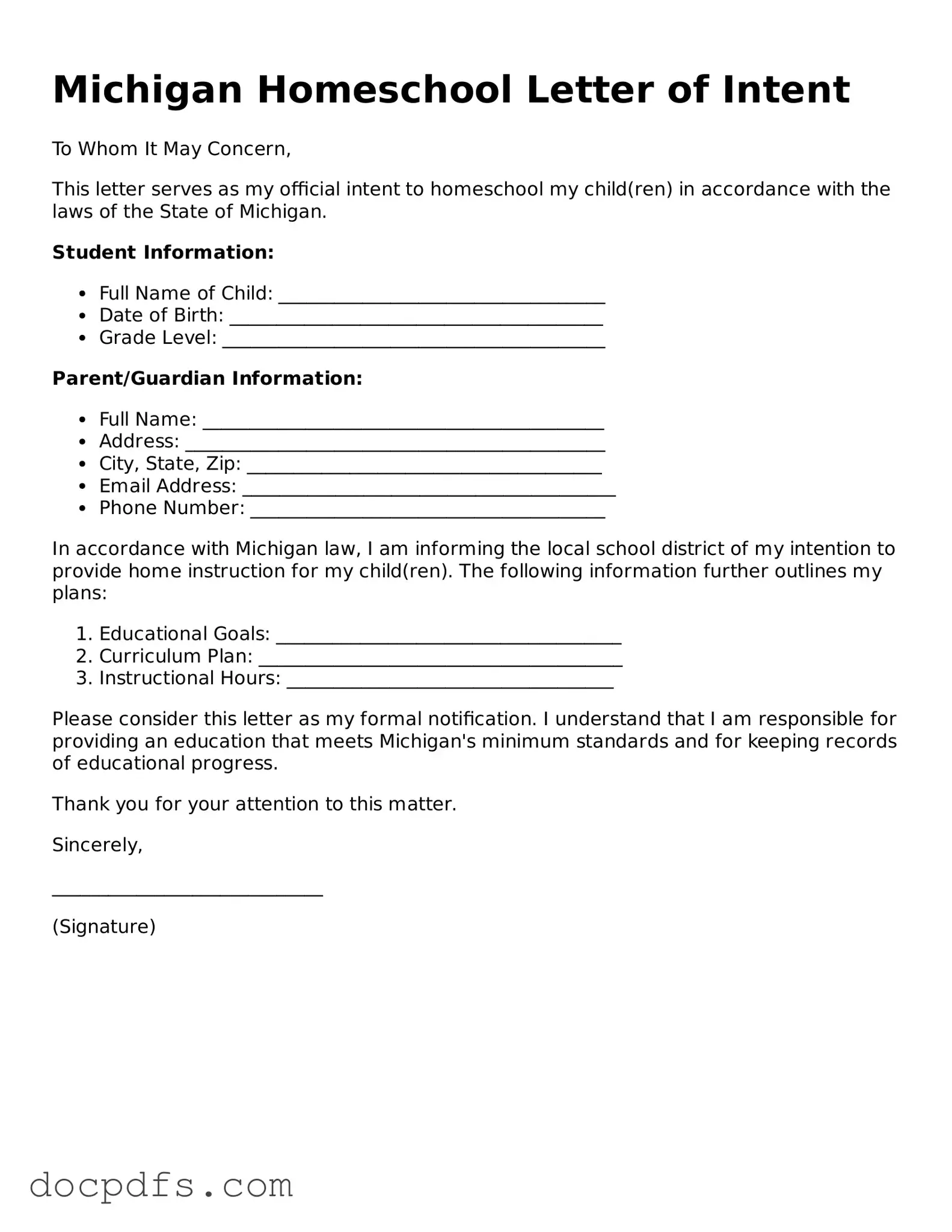What is the Michigan Homeschool Letter of Intent?
The Michigan Homeschool Letter of Intent is a formal document that parents or guardians must submit to notify their local school district of their decision to homeschool their children. This letter is an important step in the homeschooling process and establishes your intent to provide education outside the traditional school setting.
Who needs to file the Letter of Intent?
Any parent or guardian who chooses to homeschool their child in Michigan must file this letter. This requirement applies to all children who are of compulsory school age, typically between the ages of 6 and 18. If you have multiple children, you will need to include each child's name in the letter.
When should I submit the Letter of Intent?
The Letter of Intent should be submitted to your local school district before you begin homeschooling. Ideally, it’s best to file the letter at least a few weeks before the start of the school year or as soon as you decide to homeschool. This ensures that the district is informed and can update their records accordingly.
Your Letter of Intent should include the following information:
-
Your name and address
-
Your child's name and date of birth
-
A statement indicating your intent to homeschool
-
The date you plan to begin homeschooling
Make sure to keep a copy of the letter for your records.
No specific format is required for the Letter of Intent. However, it should be clear and concise. You can write it in a simple letter format, ensuring all necessary information is included. Some families choose to use templates available online, but this is not mandatory.
Do I need to provide any additional documentation with the Letter of Intent?
What happens after I submit the Letter of Intent?
Once you submit the Letter of Intent, your local school district will acknowledge receipt. They may not respond directly, but they will update their records to reflect your homeschooling status. It’s important to keep track of this communication in case any questions arise later.
Can I withdraw my Letter of Intent later?
Yes, you can withdraw your Letter of Intent at any time. If you decide to return your child to public school or change your homeschooling plans, simply notify your local school district in writing. This helps maintain clear communication and ensures that your child's educational record is accurate.
What if I have more questions about homeschooling in Michigan?
If you have more questions, consider reaching out to local homeschooling groups or the Michigan Department of Education. They can provide valuable resources and support. Additionally, many online forums and communities are available where experienced homeschoolers can share their insights and advice.

